Studying for Generals
Schedule of the Summer
Schedule Advice
Before the end of the semester, as a group:
- Decide schedule of topics and meetings
- Know who’s putting together recommended reading per meeting
- Decide how you want to do meetings
May/early June: Take a month off
mid June, July, early August: Do one lit per week, taking notes on articles and literature
early August: Start writing timed practice outlines and essays (I did 10 outlines, 2 full essays. Swap and comment.)
How to know what to read
What literatures to know and what to read^[“Read” is a fuzzy term: more on this later.] from each:
- Field seminar syllabi
- Annual Reviews
- Previous years’ study guides
- Other schools’ generals lists and field seminars
- People who know the subject well
- Other subfield classes in the last two years
Do not artificially constrain the amount of assigned readings. Read what you need to know!
BibDesk and Managing Citations
Bibliographies
- Bibliographies are everything for open book exams! (And for writing a dissertation)
- I use BibDesk: Mac only, but similar programs for Windows and Linux
- Don’t use something that locks your data away: you’ll want this for decades
BibDesk
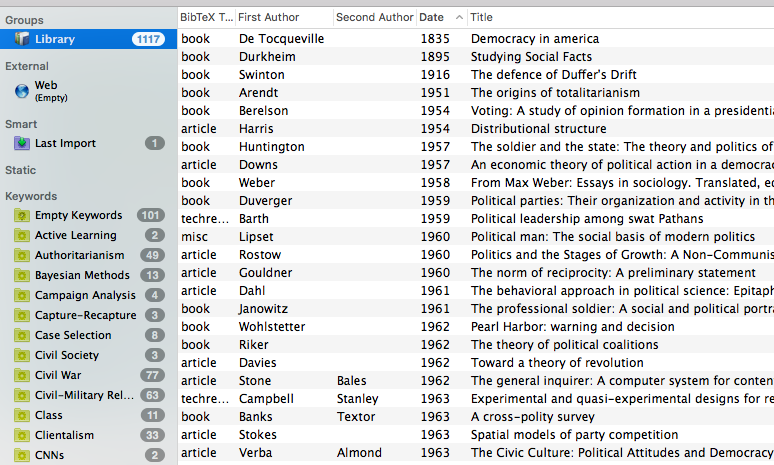
Tags
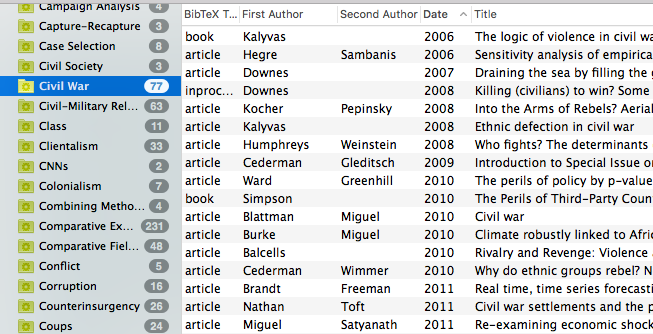
Entry viewer
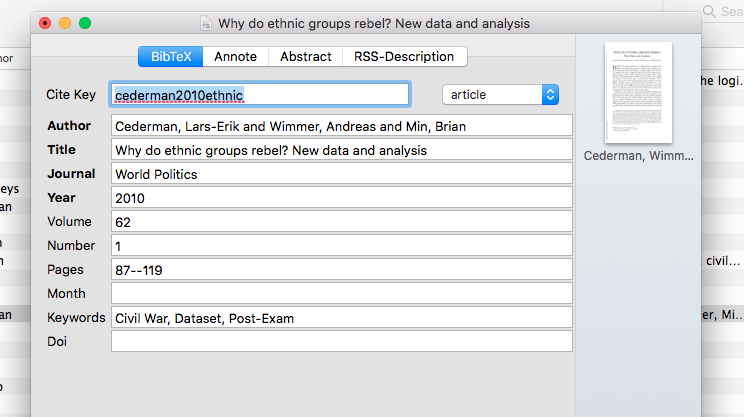
Adding Articles
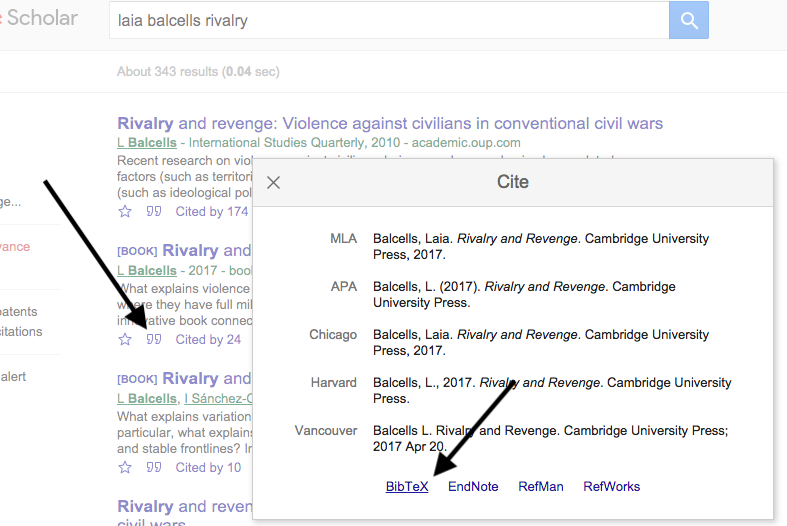
Notes
Article Notes
You must have a system. An article you didn’t take notes on is an article you didn’t read. Conversely, an article you have notes on is an article you’ve “read”, even if you only actually read the first two pages or the paragraph summarizing it in an annual review.
Notes should include (I think):
- One (!) sentence summary
- Research question
- Brief summary of argument (5 pages of notes are worthless)
- Brief assessment of evidence and method (maybe)
- Some tagging system so you can find what you’re not looking for
Notes in BibDesk

Notes in BibDesk
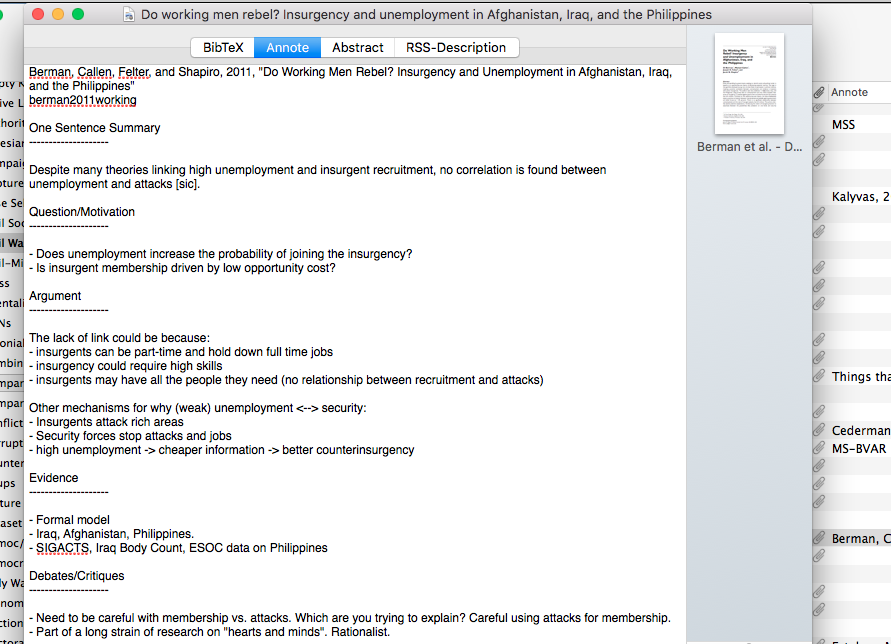
Literature Notes
Need some higher-level way of taking notes. This depends on how you think.
- IVs and DVs in a grid for each literature (Sara, Kelly)
- Narrative summarizies/“memos” (the cohort above us)
- White board intellectual histories (me and Tim)
- Don’t be afraid to pair off when there’s a large group
- Find people who like to study the same way as you.
Example whiteboard

Actual writing
A grab-bag of advice for actually writing the essays:
- Start by outlining for 30 minutes. (You must turn in outlines)
- Use your big-picture notes to understand the breadth of the question
- Use your tagged notes to make sure you’re not missing any works
- Begin your essay with definitions: easy to overlook, easy to write.
- Don’t forget examples (I did…)
Mechanically: Markdown and pandoc (but that’s my usual writing). Nice for citations!
Cool stuff
Automating stuff using your structured notes
If you store your notes inside the .bib and they’re structured in a consistent way, you can do some cool stuff like:
- extract all the research questions from your notes on a topic
- make flash cards for going from author to one-line summary and back
https://github.com/ahalterman/general_examiner
ahalterman$ python bib_to_questions.py -i MIT.bib -t "Civil War"
Extracting bibliographic entries from MIT.bib
Bibliography has 1116 total entries.
Found 15 entries for the tag 'Civil War'.
1. What is the effect of aid on civil conflict? Does it increase or decrease?
2. Does ethnic conflict cause civil war
3. Do economic shocks increase or decrease the probability of civil war?
4. Is there an "opportunity cost" mechanism in changing risk of war?
...
Conclusion
The past questions are terrifying at the beginning of the summer. By the end you’ll be able to answer them all.
I learned more from studying for generals than in any other semester.
If you put in the work, you will pass, so have fun!